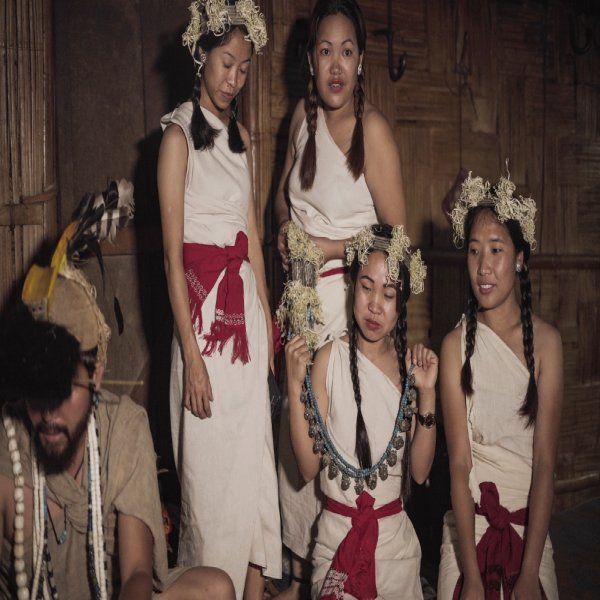practices showing communitarian life
Nyishi tribe’s Communitarian Life , arunachal pradesh

The Nyishi people of Arunachal Pradesh, meaning "highland people." The name Nyishi comes from the words 'nyi' (man) and 'shi' (mountain). The Nyishis are thought to be descendants of their legendary ancestor Abhu Thanyi, a Yunnan Province native of China. Although a part of them believe in the Christian religion, others still keep faith in the native religion of Donyi Poloism, worshipping the sun Donyi and the moon Polo. Similar to Nyeder Namlo, their temples are located throughout the Nyishi regions in order to preserve their heritage.
The Nyishi tribe practices jhoom cultivation as a community, with each family participating in shifting agriculture. They are also skilled in basketry and weaving, crafts shared among the tribe. Conflict resolution is managed communally through nyelee gatherings, led by elders, to ensure social harmony. These gatherings emphasize collective responsibility and follow traditional customary laws. Their communitarian way of life fosters self-reliance and cooperation within the community, reflecting their deep-rooted tribal unity.
Nyishi society values a communal social structure led by elders (nyagam aabhu/nyub aabhu), who preside over nyelee gatherings to resolve disputes. Decisions are based on consensus, reinforcing community welfare. Communal spaces like the nyele miram and arekh merem serve as gathering sites for these events. Leadership is often hereditary, and the community respects the authority of elders, whose guidance ensures unity and stability within the tribe. Social cohesion is central to their structure.
The Nyishi people encompass in their values the veneration of typical nature worship, especially that of Donyi Poloism, which represents the awe of Donyi (sun) and Polo (moon) through temples called Nyeder Namlo. Very peculiar oral traditions are maintained, with myths and ethical teachings roped in such as those emphasizing harmony with nature and respect for elders. This collective effort motivates solidarity and coalescence into a stronger bond with the land and guides them from using sustainable means to survive. They impart more identity to the tribal people through their values, which provide flow continuity to all generations.
In a Nyishi community, cooperative living and resource-sharing cultivate a traditional environment through shared agriculture, festivals, and rituals, thus reinforcing social bonds. These practices promote self-sustenance and preserve cultural identities. Modernity has chipped away at some members, especially the younger ones embracing Christianity; still, the cultural traditions and beliefs are vital in establishing that bridge between the past and the present. Nyishi, by virtue of its communitarian values, has always held such resilience to enable itself to adapt as change comes, wherever necessary, while retaining its unique heritage and cultural values.


